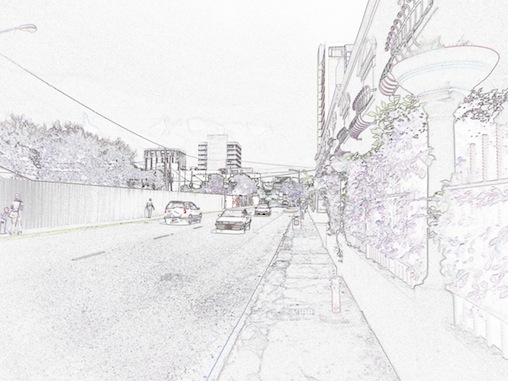By Dennis Chung
CJ Contributor
IN 2011, I REMEMBER having a discussion with someone who questioned my continuous advice that people should look towards solar energy at home, and if necessary borrow the funds to install it. At the time he said that he would rather to borrow the money to buy a new car, as data showed that the investment in solar was not a good payback.
That argument I couldn’t understand because while an investment in solar energy gives a return on investment, in savings and convenience, I don’t see how one gets any return at all from a car. Particularly if you borrow the money for the purchase. Well maybe there is the social benefits.
At the same time, in 2012, we saw where bank loans, and in particular personal loans (mostly for cars) increased over 2011.
Being the stubborn person I am, I went ahead with my plans to invest in solar energy at home, and today enjoy significant savings and much convenience. I have never regretted the decision and investment.
Today I spoke with someone who advised that many persons today are having difficulty servicing their car loans, and over the weekend I heard two stories where cars were seized by the bailiff while they were in transit. Additionally I have heard stories of businesses in trouble because some business people borrowed money to purchase motor vehicles, instead of saving the money or reinvesting it in the business.
This reminds me of a real life story where two men who were truck drivers in the 70s had $250,000 each. One decided to buy a house in Beverly Hills and the other a business, and continued to rent. Today the one with the house still has it and the one who went into the business could but many of those houses, and in fact has many investment properties.
These examples show that one of the most significant factors that cause financial hardship, even though there is a recession, is the cultural attitude of many in the country. This is illustrative of what investment advisors always tell you that there are two things that cause people to lose money – fear and greed. And in the Jamaican context I want to add another – the need to “profile”.
I have found in many instances that people who make bad financial decisions do so because they want to impress others with the so called badges of wealth. That is the car, house, and other accessories. So what they do is borrow the money and live today with the income they expect in the future.
This cultural attitude is what has caused financial distress for many Jamaicans. And I find that the ability to overcome this “profile” attitude is a significant step in regaining financial health. This is why one of the first things I mention in my book is the first step to financial reform is an acceptance of what needs to be done and an acceptance of the inherent problem.
When I was around sixteen, my uncle said to me. “its not how much you earn that is important but rather how much you earn”.
Some will come to grips with this problem and reform their finances but many more will not. They will continue to make mistakes and suffer from the need to live the culture of profiling. My own view is that this need is derived from an underlying insecurity but I am no psychologist.
This cultural attitude can be found in many countries and cultures but I think Jamaica has a big dose of it. If we are to overcome our financial challenges then there is going to have to be a radical reform of this culture, so that we can invest in productive assets, just as Trinidad did in the 1980s, while we invested in motor vehicles. After all it is the individual lifestyles that sum up to the overall condition of a country,and we must remember that economics is a social science and hence is based on cultural attitudes also.
If anyone wants to make the change they can, especially if they have someone advising them about it, but the deeper you have found yourself in this culture is the more difficult, and more help you will need.
Dennis Chung is a chartered accountant and is currently Vice President of the Institute of Chartered Accountants of Jamaica. He has written two books: Charting Jamaica’s Economic and Social Development – 2009; and Achieving Life’s Equilibrium – balancing health, wealth, and happiness for optimal living – 2012. Both books are available at Amazon in both digital and paperback format. His blog is dcjottings.blogspot.com. He can be reached at drachung@gmail.com.







